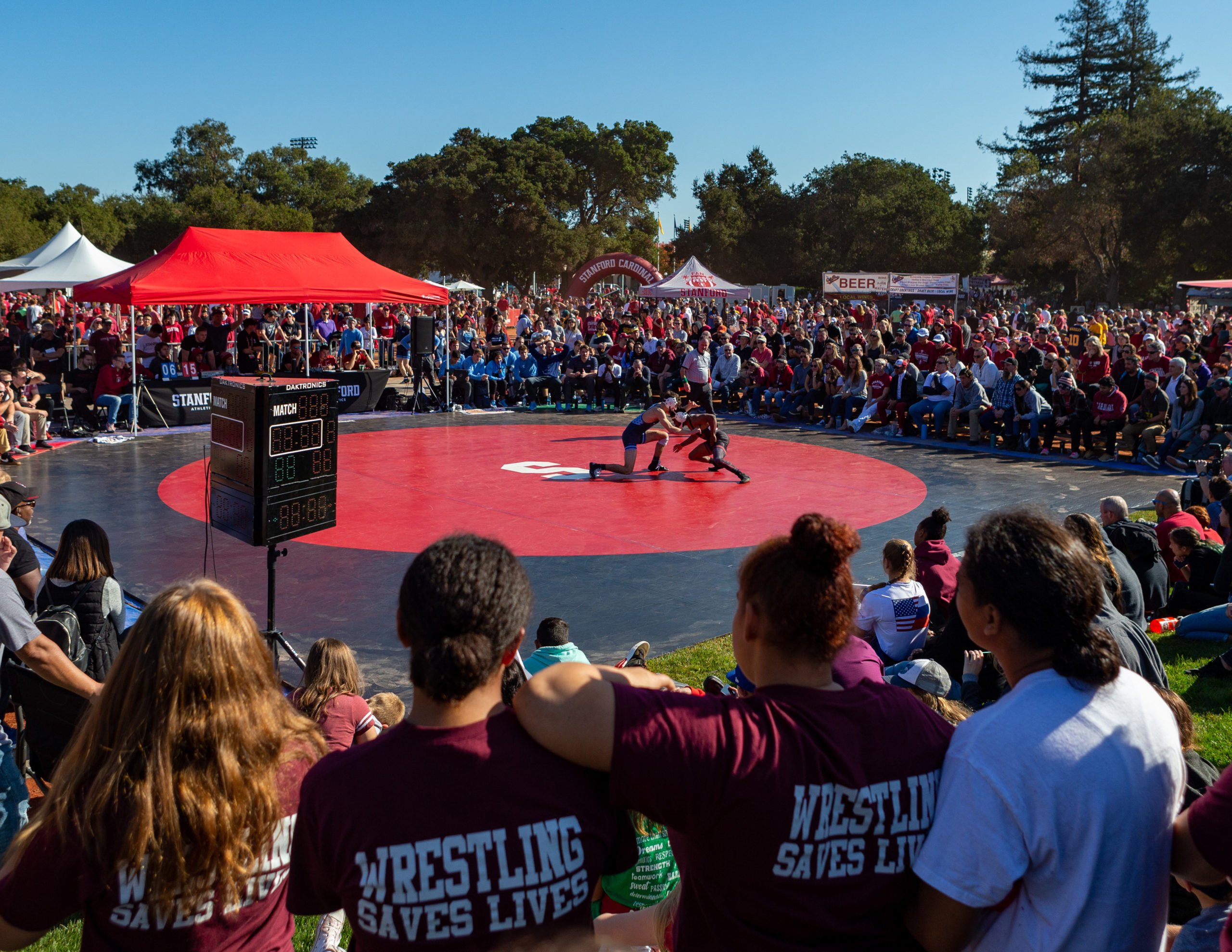Distinguished Administration of Stanford University:
In response to your decision to eliminate wrestling at Stanford University, it is important that you understand the impact that wrestling has on the lives of so many socio-economically diverse people who benefit from the demands and challenges of the sport. Wrestling helps so many open their eyes to a new world, forge unbreakable family bonds and learn toughness, discipline and humility. It taught me the greatest values of the sport: how to selflessly commit to a greater purpose. Those I wrestled with helped me redefine what the word “family” meant, and I realized — through wrestling — the importance of education. Stanford is setting a terrible example by discontinuing the sport.
For a large part of his life, my father had never heard of Stanford University; he probably would still struggle to find Palo Alto on a map. His education ended after seventh grade when he turned to a full-time job to help bring income to a financially struggling family. His grandson, however, began attending Stanford University in the fall of 2020 on a wrestling scholarship. How, in just two generations, did a family go through such an educational transformation?
My father passed both his work ethic and his disinterest in school to me. For most of my childhood education, school was not particularly valued in my home. I was not passionate about my studies and looked at school as a daily chore. However, some of that changed halfway through seventh grade when a caring teacher encouraged me to try out for the wrestling team.
In contrast to many other sports, my blue-collar upbringing fit well with wrestling: no special equipment was required, I didn’t need golf clubs, tennis lessons, football shoes and pads — just a willingness to work hard to improve my technique and my physical strength. I became friends with a wrestler in my neighborhood and went to his house on a regular basis — we’d spread out sleeping bags and blankets on his garage floor to train. It was crude, but I loved it.
Over time, I improved, and the eventual success I experienced on the mat in high school brought scholarship offers to attend college. While I still did not care much for the academic side of school, I knew I wanted to continue wrestling. College was the only way to do so. The first time I ever set foot on a college campus was the day I moved out of the house to another state to attend my undergraduate studies.
I trained and competed all over the United States, developed life-long friendships, and I learned over time that I wanted to give back and share these experiences to help others. Through wrestling, I discovered a genuine passion for helping others grow, so I became a high school mathematics teacher and wrestling coach. I have been doing both for 31 years and the passion, humility and gratitude I feel for the sport of wrestling still manifest throughout each day of my career and, hopefully, into the lives of the young men and women that I work with.
Wrestling has changed the trajectory of my family: my father who did not complete high school now has a grandson, Kyle, who recently started his undergraduate career at Stanford. Kyle is only able to attend Stanford because of his wrestling prowess and the lessons that wrestling has taught him. I wonder how many other families are going to be affected by Stanford’s decision to eliminate wrestling following the 2020-21 academic year? How many other young men and women will not be able to utilize the platform for excellence that Stanford wrestling provides?
Stanford is known as a world leader in student-athlete training and education; never has Stanford shown excellence by reducing opportunities for their student-athletes. The family and community focus at Stanford is what drew my son Kyle; the win-loss record of a program is insignificant compared to the opportunities, self-respect and development of student-athlete potential. Wrestlers become pillars in the communities in which they live. It is my hope that Stanford will continue to develop these pillars through the wrestling program.
If Stanford does not have the courage and creativity to continue fielding its wrestling program, who will? What does it mean for this opportunity for self-discovery if one of the most prestigious schools in the nation merely gives up, without looking first to solve the problem in a way that is equitable to their student-athletes? I ask that you evaluate options that would allow the Stanford wrestling program to continue not just for my son, but for all the young men and women whose lives you are affecting. This loss will cause a ripple effect felt by many generations to come.
In Wrestling,
Dave Rowan
Perry High School Wrestling, Head Coach
Edinboro All-American 1987
Edinboro Class of ‘89
C: (440) 479-5250
Twitter: @drowan5250
Contact Dave Rowan at rowand ‘at’ perry-lake.org.
The Daily is committed to publishing a diversity of op-eds and letters to the editor. We’d love to hear your thoughts. Email letters to the editor to eic ‘at’ stanforddaily.com and op-ed submissions to opinions ‘at’ stanforddaily.com. Follow The Daily on Facebook, Twitter and Instagram.
